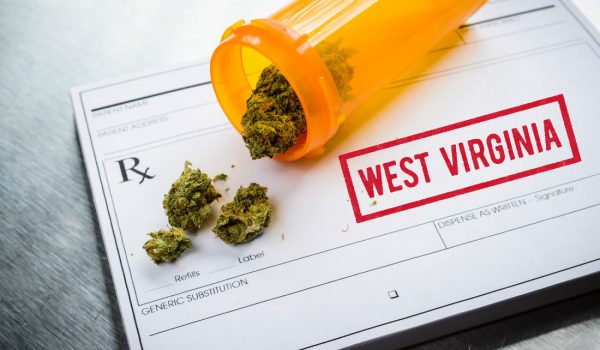As West Virginia looks forward to implementing medical marijuana under the West Virginia “Medical Cannabis Act”, [1] authorized licensed physicians are cautioned to make sure their patients, the public and regulators fully understand that they are not prescribing medical marijuana. Instead, physicians are certifying that the patient: 1) Has a serious medical condition, and 2) The patient will benefit from receiving medical marijuana. A common misconception that patients, the medical community and the public at large may have about future medical marijuana use in West Virginia is that registered practitioners prescribe the use of medical marijuana. [2]
The Medical Cannabis Act authorizes duly licensed physicians [3] who meet certain criteria to certify that: 1) Patients have a serious medical condition; and 2) Such patients will receive a legitimate medical or palliative benefit from receiving medical marijuana. A “serious medical condition” is limited to one of the 18 diagnoses described in the Medical Cannabis Act [4].
However, it should be underscored that the Controlled Substance Act prohibits physicians from prescribing Schedule I controlled substances and marijuana remains on Schedule I as a controlled substance. The federal government has determined that controlled substances have:
- A high potential for abuse;
- No currently accepted medical use and treatment in the United States;
- A lack of accepted safety for use under medical supervision.
The Medical Cannabis Act adopts a similar posture as taken by Ohio in distinguishing between prescribing and recommending medical marijuana or certifying the relevant condition and the benefit from its use. Both Ohio and West Virginia statutes rely upon this distinction to distinguish between prescribing medical marijuana, which is illegal for physicians under the Controlled Substance Act, and either recomm3ending or certifying the use but falling short of prescribing medical marijuana.
Case law from the Ninth Circuit from California has upheld the distinction between recommending medical marijuana and prescribing the same. The Ninth Circuit upheld the District Court’s ruling in favor of the patients and physicians, permanently enjoining the federal government from prosecuting or revoking a physician’s DEA registration for recommending medical marijuana. Both courts determined that:
- The First Amendment protects physicians from being punished for voicing their professional opinions based on their medical judgment, whether the government agrees with those or not;
- Marijuana treatment recommendations for certain debilitating illnesses are recognized as legitimate in medically appropriate circumstances and if recommendations cannot be communicated, the physician-patient relationship can be seriously impaired ;
- A physician’s recommendation – unlike a prescription – may not necessarily lead to a patient obtaining marijuana, to the contrary, patients receiving a recommendation may choose to honor federal law and not obtain marijuana or may even use the recommendation to urge the government to change the law ;
- Even if a physician foresaw that a recommendation may be used to acquire marijuana by illegal means, this alone would not make the doctor’s recommendation a crime;
- The dispensing of information by a physician is very different from the dispensing of controlled substances, and holding a physician responsible for whatever conduct the physician could anticipate a patient might engage in after leaving the physician’s office is simply beyond the scope of federal law.
While the Ninth Circuit affirmed the ruling in favor of medical marijuana recommendations, it pointed out that the ruling did not limit the government from investigating physicians who aid and abet the actual distribution of medical marijuana. Interestingly, the Supreme Court of the United States denied the government’s writ of certiorari without comment, leaving the Ninth Circuit’s opinion as law in that Circuit’s states and territories (Alaska, California, Hawaii, Idaho, Montana, Nevada, Oregon, Washington, Guam, and the Northern Mariana Islands).
Bottom Line: Registered practitioners in West Virginia should be cautious in interactions with patients and in their medical records that at all times they clearly state they are certifying the patient’s status as having a serious medical condition and that the patient would benefit from receiving medical marijuana from a medical or a palliative perspective, but that such registered practitioners are not prescribing medical marijuana. The difference between prescribing and recommending or certifying this status can have important significant civil and criminal consequences for West Virginia physicians serving as registered practitioners under the recently adopted West Virginia Medical Cannabis Act.
[1] This new law effective as of July 5, 2017 has a target date of allowing for medical marijuana use in West Virginia of July 1, 2019.
[2] In a prior Physician Alert, physicians in Ohio were cautioned that Ohio physicians are not prescribing, but are recommending the medical use of marijuana: http://www.healthlawmattersblog.com/physician-alert-remember-you-are-recommending-medical
[3] Registered practitioners must currently hold an active and unrestricted license issued by the West Virginia Board of Medicine and the West Virginia Board of Osteopathic Medicine.
[4]West Virginians that are certified to have one of the following serious medical conditions are eligible to receive medical marijuana: a) Cancer b) Positive status for human immunodeficiency virus or acquired immune deficiency syndrome c) Amyotrophic lateral sclerosis d) Parkinson’s disease e) Multiple sclerosis f) Damage to the nervous tissue of the spinal cord g) Epilepsy h) Neuropathies i) Huntington’s disease j) Crohn’s disease k) Post-traumatic stress disorder l) Intractable seizures m) Sickle cell anemia n) Severe chronic or intractable pain of neuropathic origin or other severe chronic or intractable pain or o) terminally ill patients.

